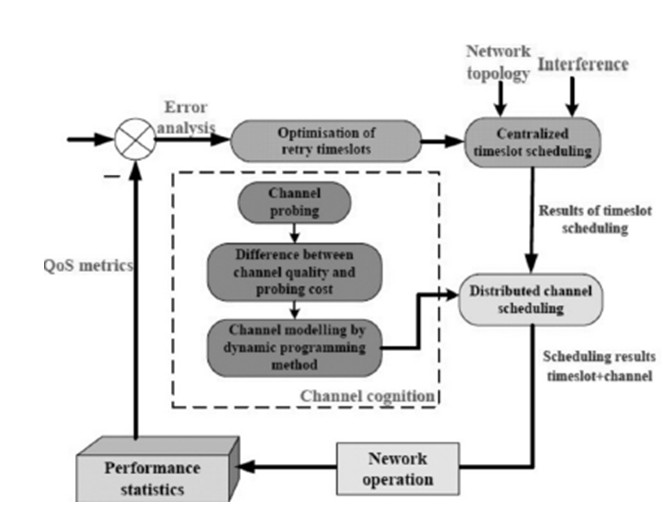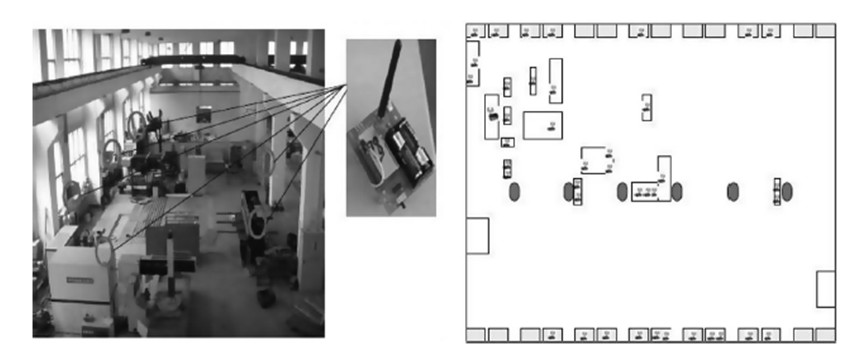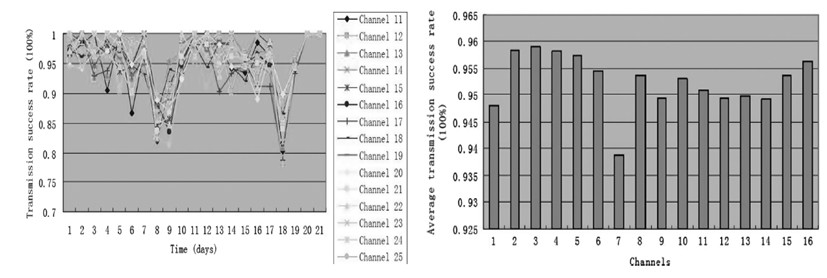The need for reduced cabling, faster setup times for equipment, reliable communication in harsh areas and added mobility have triggered research on the use of wireless communication in industrial systems. However, wireless communication is characterized by its unreliability. The unreliability is defined as high error probability, which could lead to the risk of causing severe problems for applications with strict reliability and timing requirements.
At present, unreliability can be compensated for by channel encoding schemes at physical layer, retransmission schemes at media access control layer, multi-path routing schemes at network layer, and end-to-end transport protocols at transport layer. However, those schemes will result in more complexity, large energy consumption and communication overhead.
To handle this issue, the researchers from Shenyang Institute of Automation, Chinese Academy of Sciences (CAS) proposed a framework containing both global centralized timeslot scheduling and local distributed timeslot scheduling, in order to give reliable communication support to an industrial application. The proposed framework is shown in Figure 1.

Figure 1 Framework of global centralized timeslot scheduling and local distributed timeslot scheduling (Image provided by ZHANG Xiaoling, et al)
The global centralized timeslot scheduling aims to guarantee global optimality of resource allocation, during which a mathematical reliability model is built to avoid resource waste by the stationary allocation method and to improve the reliability of packet transmission. We develop a set of necessary and sufficient conditions and extend the conflict-free timeslot scheduling to account for the reliability. On the other hand, local distributed channel scheduling shares the responsibility of resource allocation. During channel scheduling, the channel model is constructed by the dynamic programming method and takes both probing cost and channel quality into consideration, which alleviates the uncertain and time-varying interference and overcomes the blindness of traditional methods.
Based on the framework, the researchers proposed the Reliable transmission scheduling for multi-channel wireless sensor networks with low-cost channel estimation algorithm, which is abbreviated as RSC algorithm.
The RSC algorithm is evaluated on the SIA 2420 and the results are shown in Figure 2 and Figure 3.

Figure 2 Experiment scene and hardware (Image provided by ZHANG Xiaoling, et al)

Figure 3 (a) Transmission success rate of non-adaptive algorithm with increase of packet number and time (Image provided by ZHANG Xiaoling, et al)

(b) Transmission success rate with increase of time by using RSC algorithm (Image provided by ZHANG Xiaoling, et al)
Compared with the non-adaptive transmission scheme, the RSC algorithm chooses the best channel for transmission and avoids channels with bad quality, which can greatly increase transmission success rate. The average transmission success rate of each channel is up to 93.9%, which increases 87.8% compared with the non-adaptive transmission scheme.
This work was published on the journal of IET COMMUNICATIONS, Volume 7, Issue 1, Jan 2013, 71-81. It was partly supported by the Natural Science Foundation of China under contact numbers 61202418 and 61174026, the National High Technology Research and Development Program of China under contact no. 2011AA040101, the Special Program for Key Basic Research Founded by MOST under contact no. 2010CB334705 and Foundation of Chinese Academy of Sciences under contact (KGCX2-EW-104).
CONTACT:
Assistant Prof. ZHANG Xiaoling
Shenyang Institute of Automation, Chinese Academy of Sciences
Email: zhangxiaoling@sia.cn